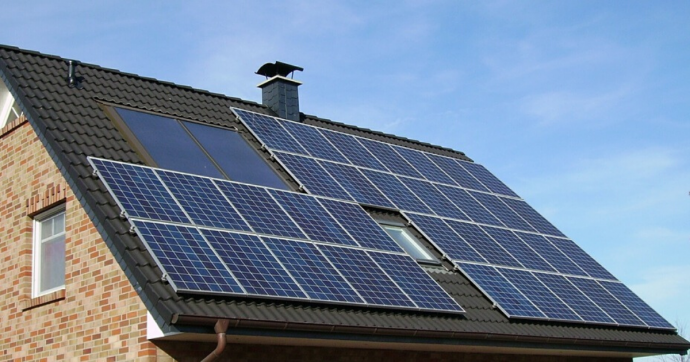This is an article that I published today in the Italian newspaper "Il Fatto Quotidiano." As a discussion, it is not very deep -- of course, it is written for the general public and these articles have a limit of 650 words. Yet, I think not many people, even among energy specialists, have realized the silent revolution that has turned photovoltaic energy from an expensive, niche technology into something that has an EROEI higher than that of petroleum in the "golden days." Don't expect it to "replace fossil fuels," as some people would expect it to do. It is a different technology, with different capabilities, different applications, with its strong and weak points. But it is starting to change the world, and it will.
How about hydrogen, the subject of this blog? Well, if we have cheap and abundant energy from PV, we could use hydrogen to store it. But that is an expensive storage solution and will be used (if it is ever used) when all the other possibilities have been exhausted.
Photovoltaic Energy is an Opportunity that the Country Should not Miss

Imagine a bank account that pays you 100% interest That is, after you have deposited 1000 euros, it gives you another thousand euros at the end of the year, and so on every year. You would like a bank account like that!
Obviously, there is no bank account that yields so much, but there are technologies that yield at such levels, albeit not in monetary but in energy terms. There is an article published this month by Fthenakis and Leccisi which reviews the situation and finds a truly excellent yield of photovoltaic technology due to the technological improvements of the last 5-7 years. In practice, for good insolation, as we could have in Southern Europe, a photovoltaic system returns the energy needed to build it in about a year! We are now at the levels of oil during its heyday, when it was abundant and cheap, and perhaps even oil was not doing so well at that time.
That of Fthenakis and Leccisi is not the only article that comes to this conclusion, all recent studies on the subject come to similar conclusions. A very recent article in “EDP Science” . Basically, the electricity produced by photovoltaic plants is often the cheapest in absolute terms, the growth of installations continues to exceed forecasts, and we are now talking about the "photovoltaic revolution." We face the real possibility of eliminating fossil fuels once and for all from the global energy system.
Now, I know that you are already with your fingers on the keyboard to write in the comments "but the variability?" "I don't want to see panels in front of my house!" "And how about waste ?" and things like that. I know. Everyone knows these things. However, think about that.
We have a technology that costs less than the others, and which is particularly suited to Italy, “the country of the sun.” It allows us to produce energy in our home without having to import it at a high price. We also have the added benefit of having mountains that we can use for storing energy in the form of hydroelectric reservoirs. There are many other ways to manage variability - it's not an unsolvable problem . Then, about waste and recycling, we will have to invest in it, of course. But keep in mind that photovoltaic systems do not use rare or polluting materials. They can be recycled without major problems and we will certainly do so in the future. At the moment, it is a marginal problem.
In short, photovoltaic energy is an opportunity that we should not miss to relaunch the "country system" in Italy. And, indeed, things are going pretty well. In Italy we have reached 10% of electricity production from photovoltaic energy and it is a good result from which we can start decarbonise to truly the energy system. Certain things seem to have been understood nationally. You can read it in the "Pniec", Integrated National Plan for Energy and Climate, which provides for a fundamental role for renewable technologies, and in particular for photovoltaic energy.
But there remains a resistance rearguard formed by a rather ill-matched coalition that includes the oil companies, the diehard nuclearists, the cold fusion miracleists, those who are still paying the bills for the diesel car they bought, and, in general, a whole section of the environmental movement that rejects any change in the name of a "degrowth" thinking that we'll be happy to stay in the dark and in the cold.
To everyone their opinions but, in practice, at this point the only thing that can block the photovoltaic revolution is bureaucracy, perhaps the only truly "infinite resource" in the universe. On this point too, the government seems to be willing to do something to streamline and speed up the procedures of installation. It won't be easy, but with a little patience, we will get there.

No comments:
Post a Comment